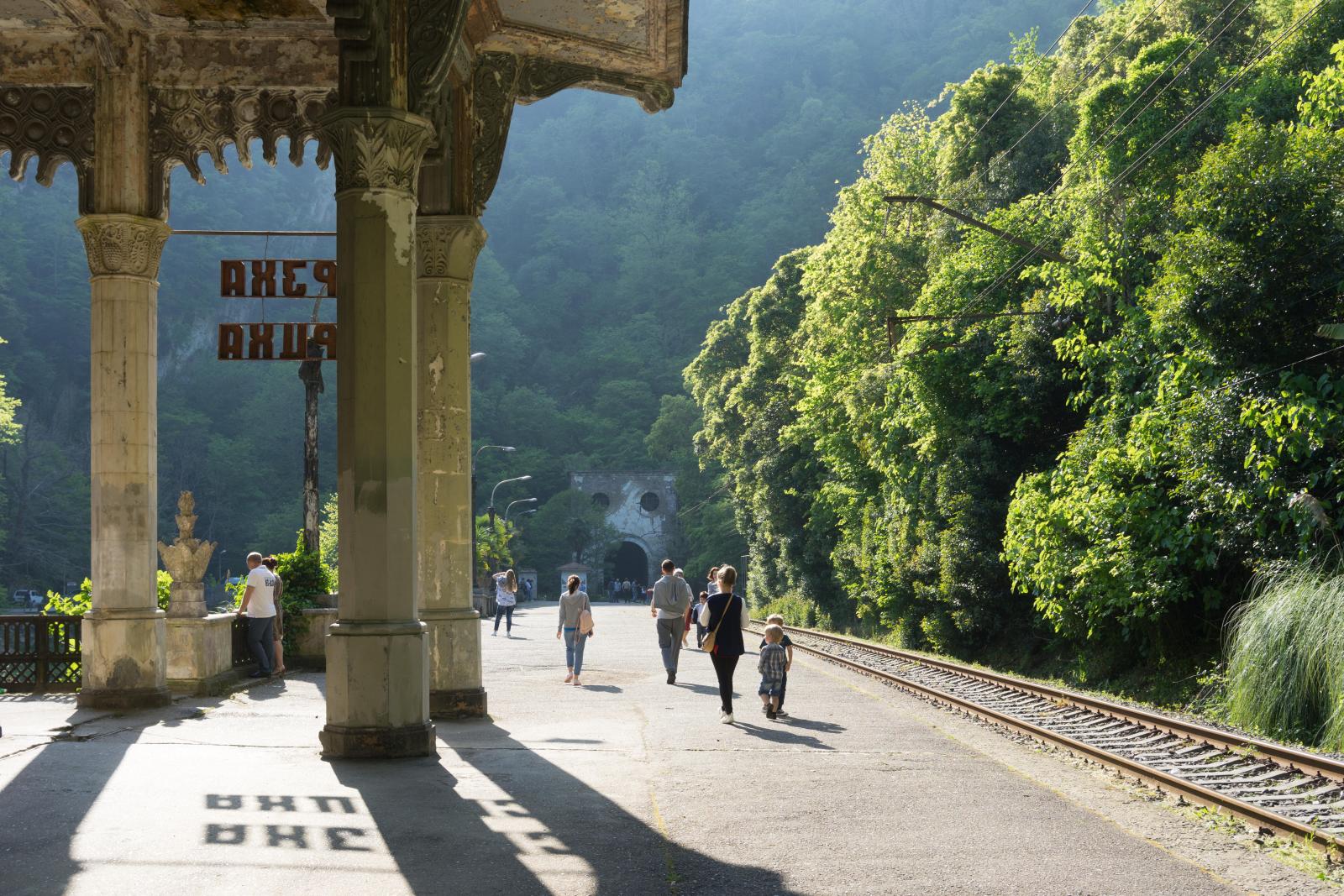
Protests in Abkhazia amid opposition arrests
The violent arrests of opposition leaders and a new wave of internal political confrontation in Abkhazia on the evening of November 11 are viewed by many experts and much of the local community as an attempt by the president to push parliament to ratify a Russian-Abkhaz investment agreement.
Thousands gathered outside the state security building in central Sukhum, spending the entire night demanding the release of the detainees. Lawyers and relatives have still been denied access, and the detainees’ conditions remain unknown. In response, the opposition has blocked two strategically important bridges over the Gumista and Kodori rivers.
According to Prosecutor General Adgur Agrba, the crisis officially began with “illegal actions by opposition members and their use of obscene language toward a deputy.”
While he did not name the deputy, it is known that earlier in the day, a confrontation occurred outside parliament between several opposition figures and deputy Almas Akaba. Surveillance footage shows a heated argument among the group, though no physical fight took place.
However, that evening, a car carrying four opposition members—former deputies Almaskhan Ardzinba and Garry Kokaya, as well as Omar Smyr and Ramaz Jopua—was stopped by masked security forces at the entrance to Sukhum. The opposition members were forcibly removed from the vehicle, thrown to the ground amid insults, and taken to the state security service following this aggressive arrest.
The opposition members were returning from Gudauta, where a public gathering at the district cultural center had voiced opposition to the ratification of the Russian-Abkhaz investment agreement.
Signed in Moscow at the end of October, the agreement is widely seen by the opposition and many in Abkhazia as highly disadvantageous to the republic. It grants large Russian businesses unprecedented concessions, which are viewed as a potential threat to Abkhazia’s long-term security.
Within an hour of the activists’ detention, several hundred opposition members and relatives of the detainees gathered outside the State Security building, leading to clashes with security forces.
The outraged crowd tore down the gates at the entrance to the security building’s courtyard, but the confrontation was quickly contained.
Opposition representatives moved their protest to Freedom Square, where they decided to block the entrances and exits to Sukhum.
By midnight, they had blocked two bridges over the Gumista River, which connect Sukhum from the west, as well as the Kodori Bridge in eastern Abkhazia.
In response to the unfolding situation, President Aslan Bzhania convened an emergency meeting of the Security Council.
A few days earlier, during a speech at the Ministry of Internal Affairs at an event marking Police Day, Bzhania had urged security forces to combat “political extremism.”
“To our regret, Aslan Bzhania, in his speech at the Ministry of Internal Affairs, called all of us—a large part of our country—extremists. During the war, Shevardnadze called our fathers separatists, and now, on our own land, we have become extremists,” opposition leader Adgur Ardzinba stated.
The opposition believes that the arrests of activists were a direct order from President Aslan Bzhania.
A parliamentary session scheduled for November 15 is set to address the ratification of the investment agreement. The opposition has vowed to hold a large rally outside parliament that day to prevent the ratification.
On November 11, amid concerns that the agreement was unpopular not only among the opposition but also more broadly within Abkhazian society, authorities announced the adoption of a separate constitutional law, apparently to “soften” public perception.
This law defines the term “multi-functional complex,” which appears in the investment agreement as a potential investment vehicle for Russian investors.
The opposition claims this term is a cover for yet another attempt by Aslan Bzhania to legalize a project for building apartments and selling them to foreigners, a project previously blocked in parliament.
- Abkhazian president links apartment law protests to foreign intelligence
- Abkhaz passport for Russians with apartments: How realistic is this scenario? Opinion
- Opinion: Abkhazia’s investment deal with Russia risks heavy losses
Under the “constitutional” definition of “multi-functional complex,” unanimously approved by deputies, apartments and apart-hotels are excluded from this category.
However, this amendment has not appeased the opposition, which remains committed to opposing the ratification of the agreement.
Amid the current situation, former Ombudsperson Asida Shakryl warned that “Abkhazia stands on the brink of losing its hard-won freedoms, sliding toward an authoritarian—or even totalitarian—system.”
The terms, toponyms, opinions, and ideas expressed in this publication do not necessarily reflect the views and ideas of JAMnews or its individual staff members. JAMnews reserves the right to remove any comments deemed offensive, threatening, inciting violence, or ethically unacceptable for other reasons.
Protests in Abkhazia amid opposition arrests

